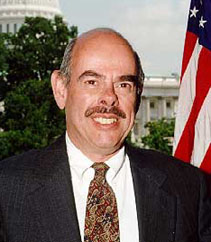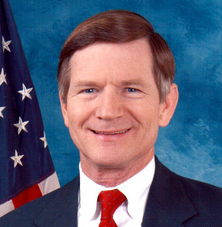Net neutrality is not a luxury: it’s life, or death.Found on Rock the Net.
-jsq
Net neutrality is not a luxury: it’s life, or death.Found on Rock the Net.
-jsq
 Some artists get their facts straight:
Some artists get their facts straight:
Musicians, including well-known bands and smaller independent artists, have joined together in supporting Net Neutrality . On the actual website, Rock the Net, you can quickly get a list of the supporting artists and a list of upcoming concerts.Or several different lists, but still, it’s quite a few bands (362 bands so far, and 105 labels), some of them quite well known; others obscure (as yet). Continue reading— SimpleTEXT creates a visual symphony, Ben Woods, WHAS11.com, 03:54 PM EDT on Monday, April 16, 2007
 Some quotes from Rep. Henry Waxman (D-CA) from 7 Nov 2006:
Some quotes from Rep. Henry Waxman (D-CA) from 7 Nov 2006:
“Sometimes I think Net Neutrality, who knows about it?,” Waxman said at that meeting. “What’s going on now in the communications area is we are moving to a duoplet. We’ll have the telephone companies. And we’ll have the cable companies. They both have wires that go into the home. You’ll have a choice of one or the other for your telephone services, cable services, and Internet services. Those are going to be provided by one or the other.”So there’s at least one elected representative who sees a duopoly. Continue reading— Silenced: Progressive Sites Censored, by Kriss Perras Running Waters, Malibu Arts Reviews, 8 April 2007
 Rep. Lamar Smith (D-Austin) recently (9 Apr)
said he didn’t understand net neutrality
“I think it would be foolhardy to cement some fixed notion of “neutrality”
– whatever that means – into the law.”
So an Austinite explains it to him:
Rep. Lamar Smith (D-Austin) recently (9 Apr)
said he didn’t understand net neutrality
“I think it would be foolhardy to cement some fixed notion of “neutrality”
– whatever that means – into the law.”
So an Austinite explains it to him:
Net neutrality is the underlying principle of a free and open Internet that all users can access the content or run the applications and devices of their choice. These Internet Service Provider companies, from whom you took at least $10,000 each from Verizon and AT&T just last year, will take away our ability to access information by charging higher prices and essentially squeezing out the “little guy” content providers who can’t afford to pay. These companies had nothing to do with inventing the Internet, the World Wide Web or Web browsers. While their infrastructure costs money, they were heavily subsidized for this with our tax dollars, and they already charge for both bandwidth and access. Don’t be fooled into thinking that these companies would not continue to provide these services and innovate if they did not have this additional revenue stream, which will only serve to enrich their shockingly high level of profits.The rest of her post is also well worth reading. Continue reading&mdash A lesson for Rep. Smith on net, Angie Yowell, Public affairs graduate student, 9 April 2007, The Firing Line, The Daily Texan, 11 April 2007
 Creative Voices sums up recent FTC and FCC actions (or lack thereof)
on net neutrality:
Creative Voices sums up recent FTC and FCC actions (or lack thereof)
on net neutrality:
With momentum in Congress building to pass Net Neutrality legislation, the FCC and even the Federal Trade Commission quickly swung into action. The FTC, which has been hostile to Net Neutrality since it emerged as a serious concern, held what it described as a “public workshop on ‘Broadband Connectivity Competition Policy.'” In giving heavily “favored carriage” to panelists hostile to NN, the FTC unintentionally but compellingly demonstrated why NN is so necessary; to preserve the ability of citizens to access all viewpoints over the Internet, including those of independent and diverse voices, and then make their own choices, rather than have the government or the cable and telco companies choose for them.And as we’ve already seen, net neutrality opponents are already using the FCC inquiry for that purpose, even though the inquiry isn’t complete. Continue readingThe FCC also mobilized, launching an official “inquiry” into Net Neutrality. An FCC “inquiry” is often a no-deadline, never-ending process that results in no action. As Brooks Boliek noted in The Hollywood Reporter, critics contend that the FCC “majority on the five-member panel is stalling because they don’t want to do anything to prevent such big network companies as Comcast or Verizon from turning the Internet into their own personal amusement park” That’s spot on; this is little more than an attempt to give NN opponents an argument to fend off calls for meaningful Congressional action to preserve the freedom of consumers to choose what websites they can visit on the Internet.
— Net Neutrality Update, Creative Voices’ 1Q 2007 Newsletter, April 10, 2007
 An online chili vendor gets political:
An online chili vendor gets political:
Now, Maricle is worried that the big boys might gain an edge on the virtual highway where he set up shop. That explains why he and five other Internet devotees from Albuquerque sat down with Republican Rep. Heather Wilson in late February to urge her to act on “Net neutrality,” legislation that aims to block telephone companies from providing a premium service to Internet customers who pay higher fees.Politicians respond to local constituents. Continue reading— The Human Face of Net Neutrality, By: Jeanne Cummings, The Politico, April 9, 2007 05:34 PM EST
 Net neutrality opponents have apparently gotten up to predicting that
net neutrality will cause the Internet to melt down due to traffic overload;
for example, here’s
an article in Forbes.
Net neutrality opponents have apparently gotten up to predicting that
net neutrality will cause the Internet to melt down due to traffic overload;
for example, here’s
an article in Forbes.
Someone has taken the time to research these claims, and finds them hollow:
Why the surge of sky-is-falling rhetoric in the early months of 2007? Three possible explanations include misapplication of anecdotal evidence, the conflation of long-term and short-term views, and political gamesmanship.Anyone who’s been on the Internet for a while has seen Imminent Death stories over and over, since about 1974, that is, back in the ARPANET days before the Internet proper even existed. Various opponents of Internet technology or deployment seize on the glitch of the moment and build that molehill into a mountain. Continue reading— The Future of the Internet: Scare Stories, CIO Insight, By Edward Cone, April 4, 2007
For the past 18 months, it has been open secret that Rogers engages in packet shaping, conduct that limits the amount of available bandwidth for certain services such as peer-to-peer file sharing applications. Rogers denied the practice at first, but effectively acknowledged it in late 2005. Net neutrality advocates regularly point to traffic shaping as a concern since they fear that Rogers could limit bandwidth to competing content or services. In response to the packet shaping approach, many file sharing applications now employ encryption to make it difficult to detect the contents of data packets. This has led to a technical “cat and mouse” game, with Rogers now one of the only ISPs in the world to simply degrade encrypted traffic.Why degrade encrypted traffic? Because traffic these days is encrypted to prevent flow shaping on it. Slowing down all encrypted traffic catches that, including unauthorized movie sharing and the like. However, it also catches legal and authorized encrypted traffic. For example, I always log in on my remote computers using ssh, which is encrypted. This is for privacy. So is Rogers now making privacy slow?— The Unintended Consequences of Rogers’ Packet Shaping, Michael Geist, Law Bytes, 5 April 2007
Packet shaping doesn’t have to be a problem with net neutrality, but in this case it looks like it is.
-jsq
Today, the Federal Communications Commission (FCC) declared that wireless broadband Internet access service is an information service under the Communications Act (Act). This action places wireless broadband Internet access service on the same regulatory footing as other broadband services, such as cable modem service, wireline broadband (DSL) Internet access service, and Broadband over Power Line (BPL)-enabled Internet access service. It thus ensures that wireless broadband Internet access services are similarly free from unnecessary regulatory burdens. Competition among all of these broadband services will provide consumers with more and better services at lower prices.Well, there is more competition in wireless Internet access than in cable or telco Internet access, but given the track record of this classification thus far in actually promoting more and better services, I have to remain sceptical. Also notice the word “consumers”, not participants.&mdash: FCC CLASSIFIES WIRELESS BROADBAND INTERNET ACCESS SERVICE AS AN INFORMATION SERVICE, Chelsea Fallon, FCC, 22 March 2007
-jsq
Everybody agrees that there are no actual problems with net neutrality, and as our own Chris Wolf explained last week, it doesn’t make sense to fashion legislative remedies to situations that don’t actually need remedying. If anything, it just shows that the supporters of net neutrality laws are looking for any avenue possible to impose restrictions on ISPs that would benefit the big online content companies. Whether through the Senate, through the FCC, through the state legislatures, it doesn’t really matter. Any opportunity to regulate the Internet is one they want to pursue.Everybody? Such confidence to be able to speak for everybody with no exceptions! Situations that don’t need remedying? I think the situation before August 2005 needed less remedying; now that the telcos have already gotten the FCC to abrogate net neutrality, the situation does need remedying. Restrictions on ISPs that would benefit the big online content companies? Only in the sense of no new charges for something they’re already paying for, and restraints on the ISPs restriction content or speeds. “Any opportunity to regulate the Internet”; oh my. How dastardly those net neutrality proponents must be! Continue reading— Ask Questions First, Change Policy Later, Hands Off the Internet, April 3, 2007 at 10:24 am